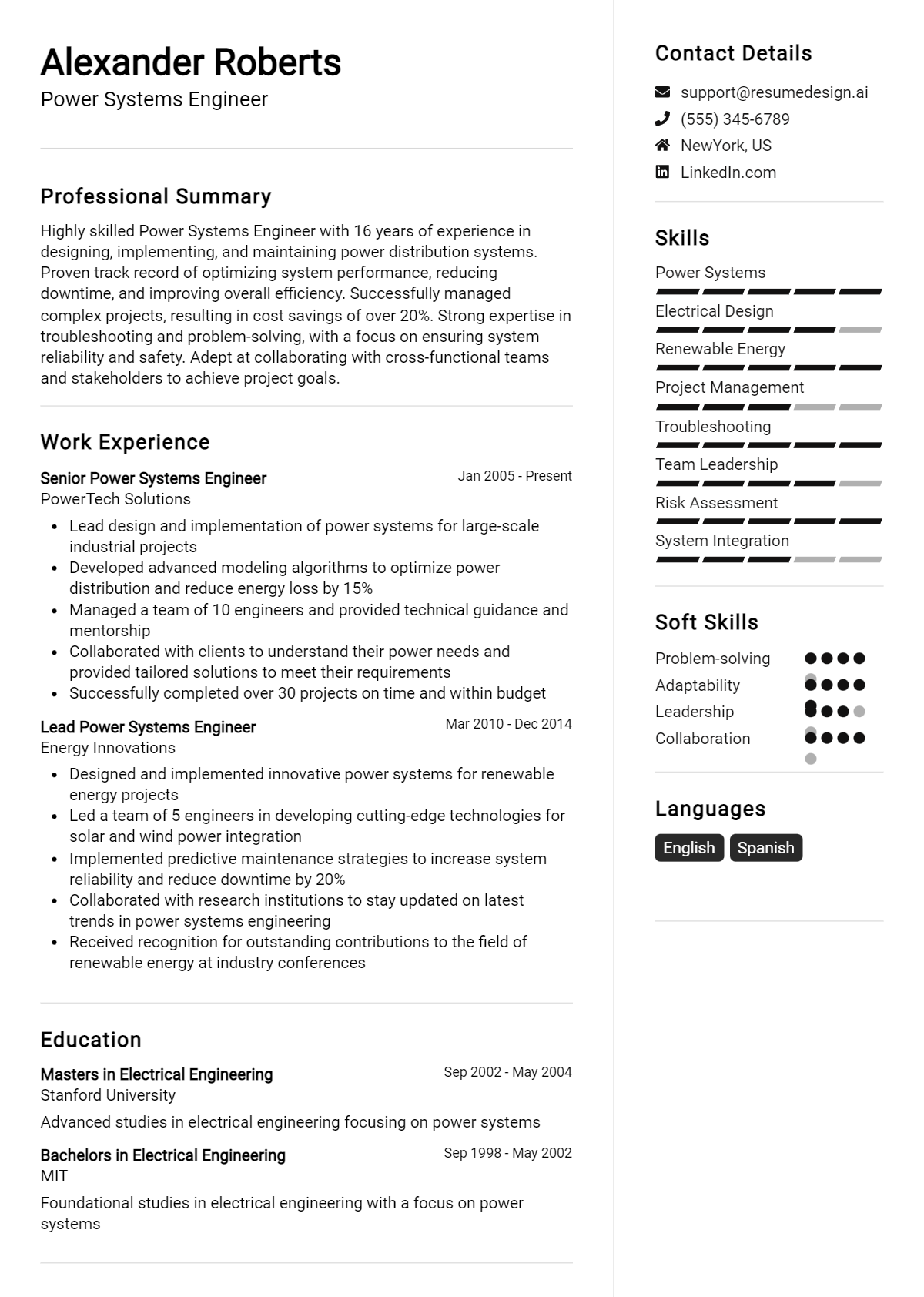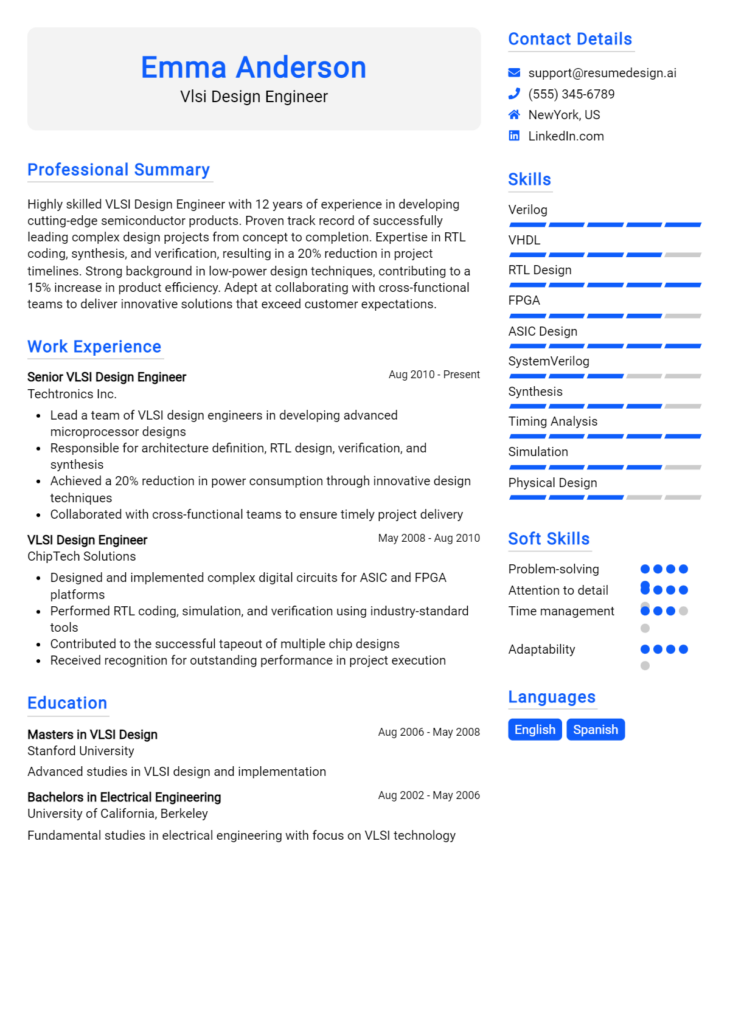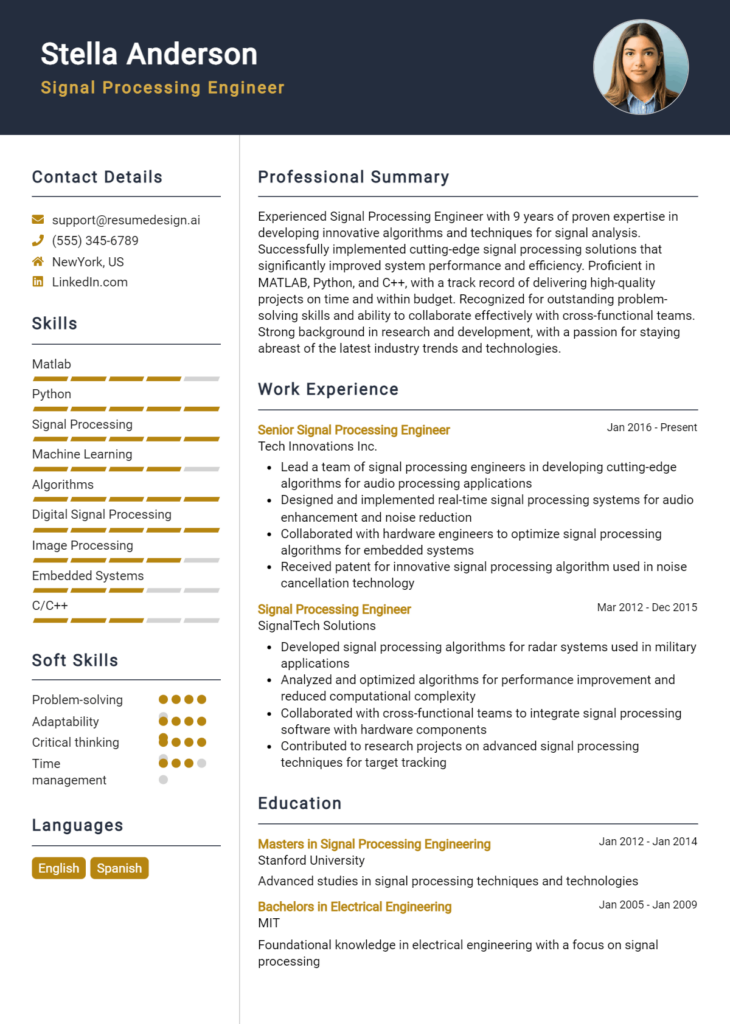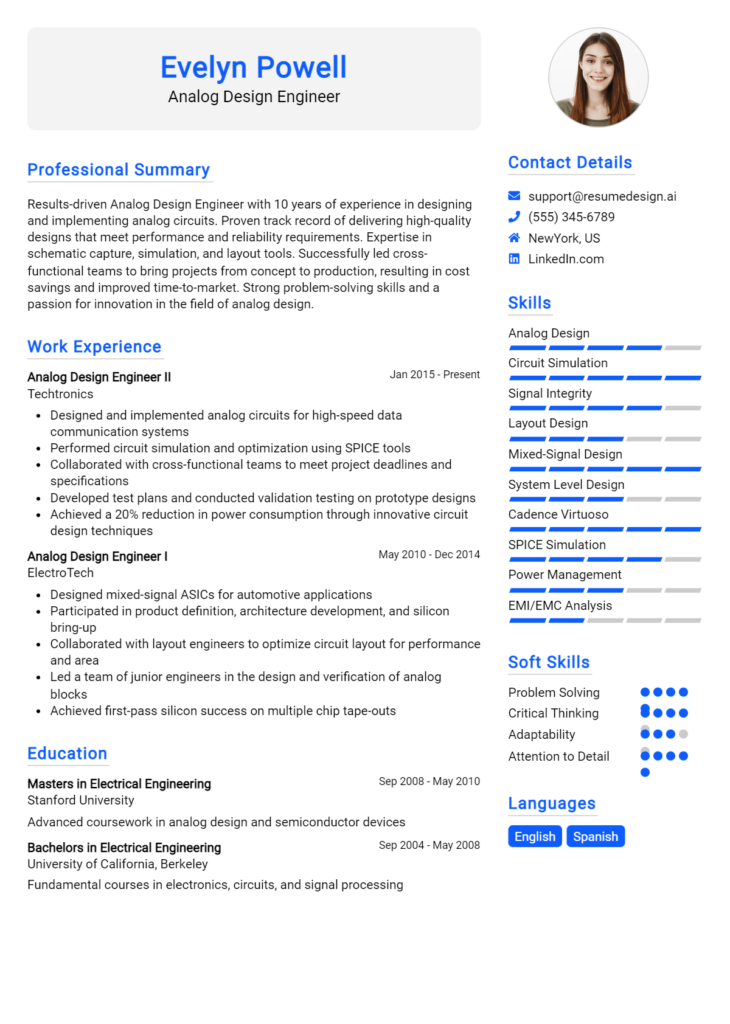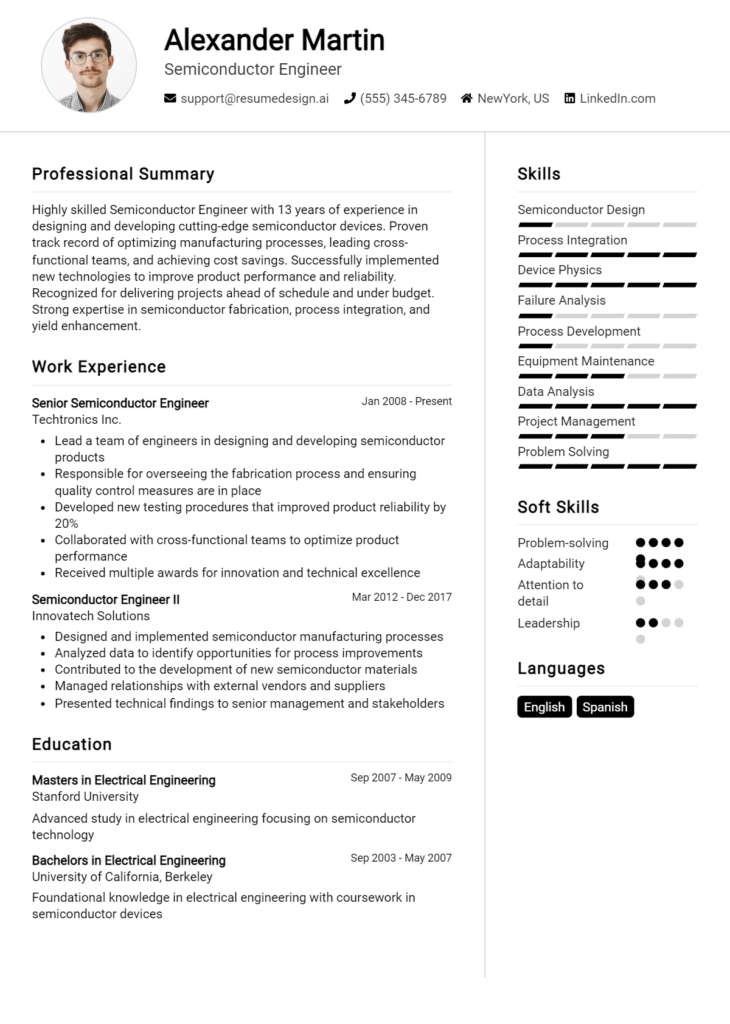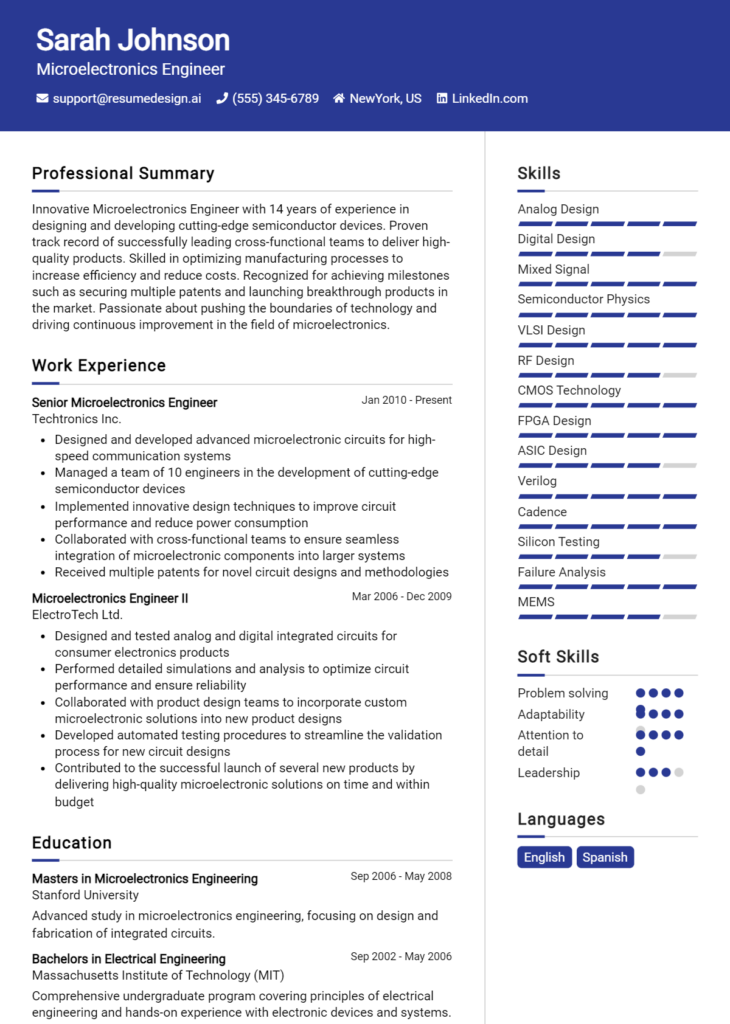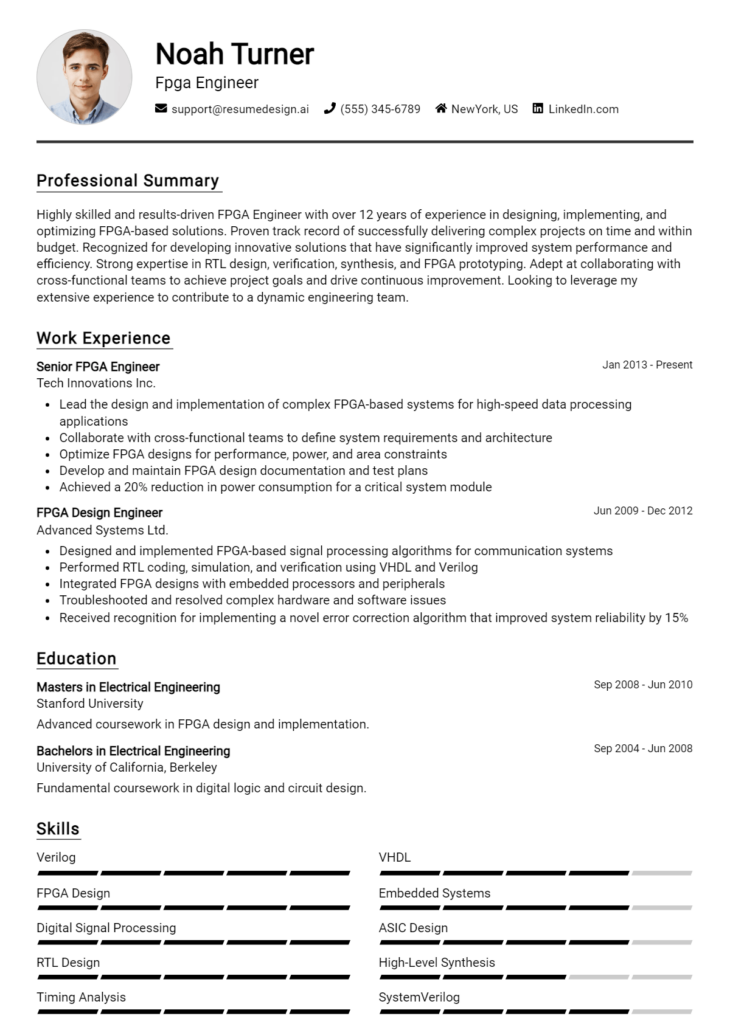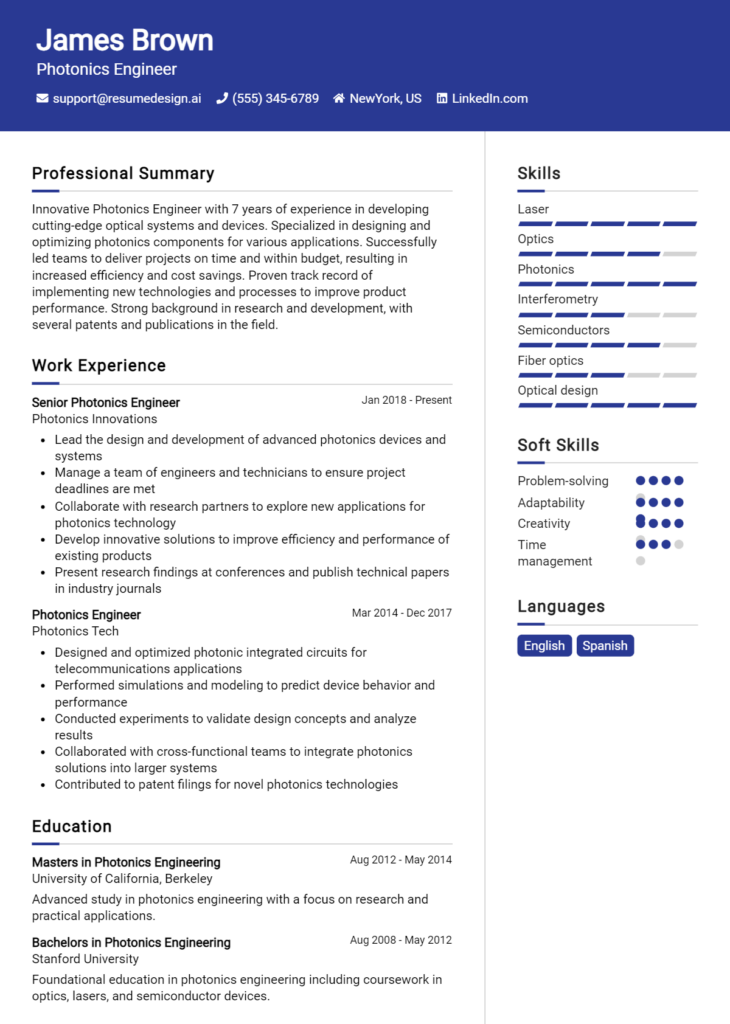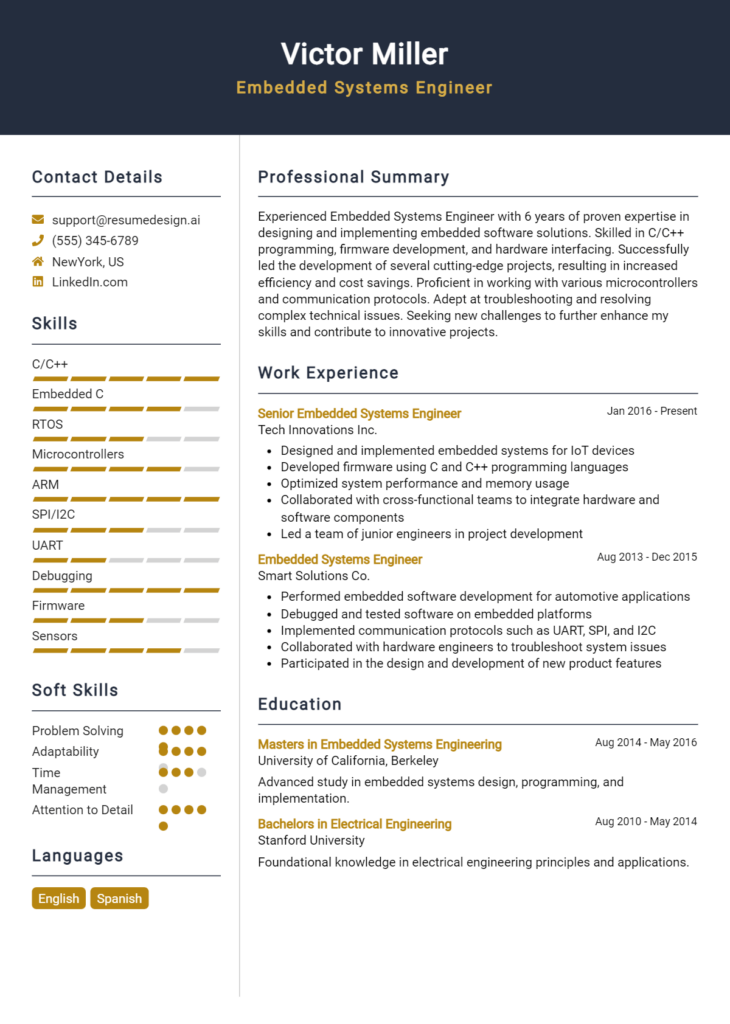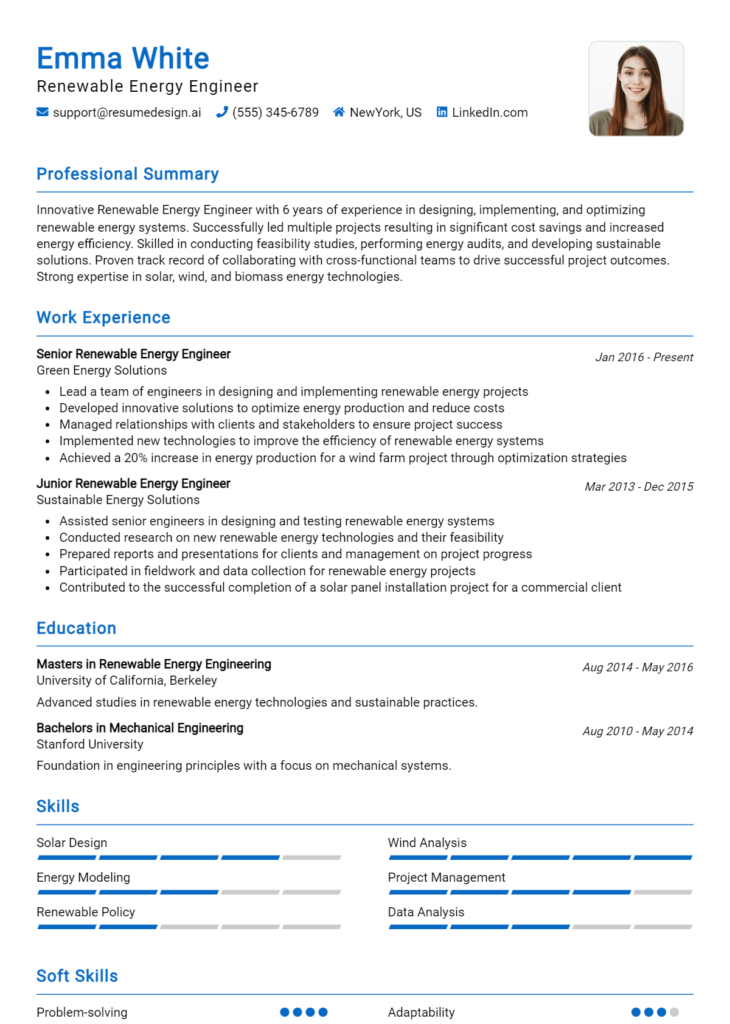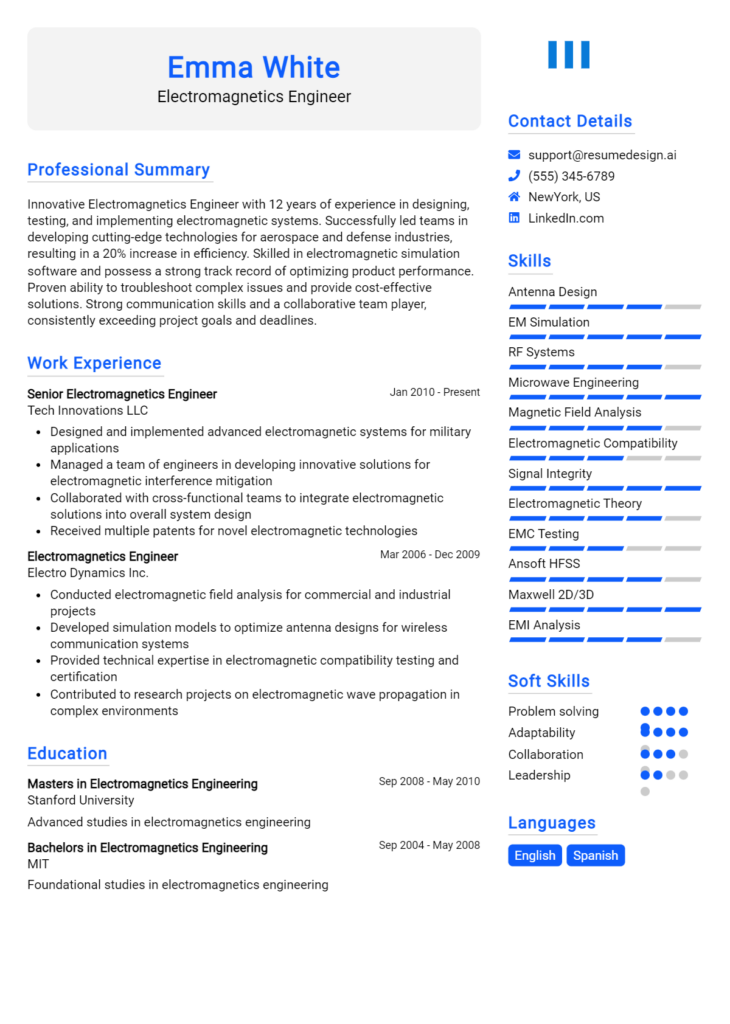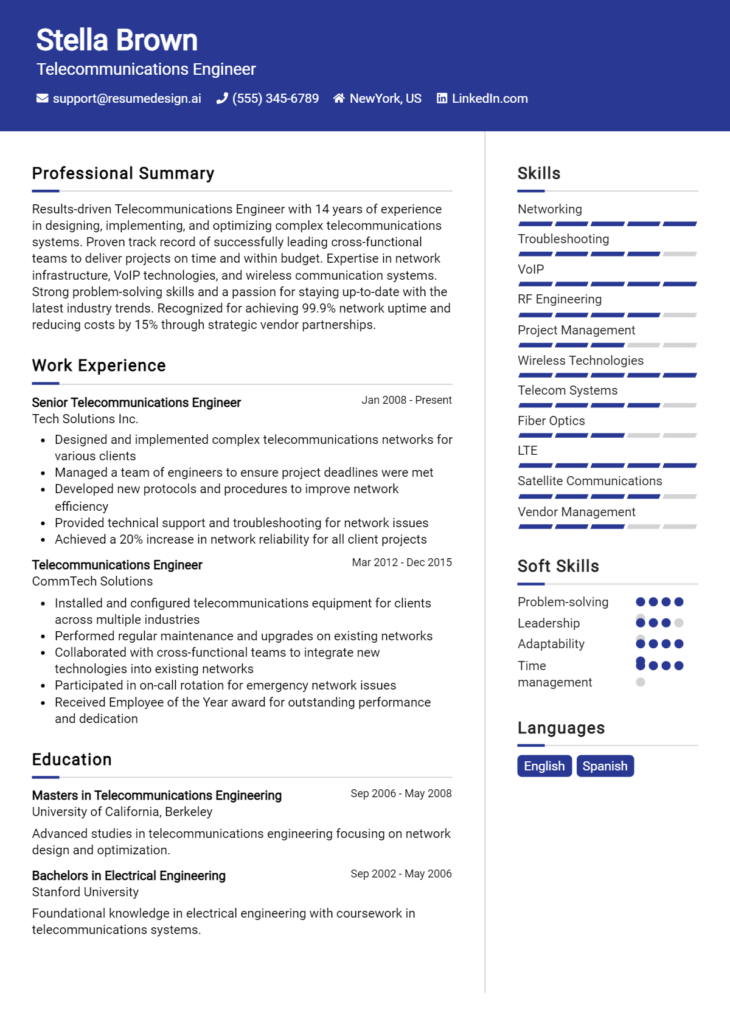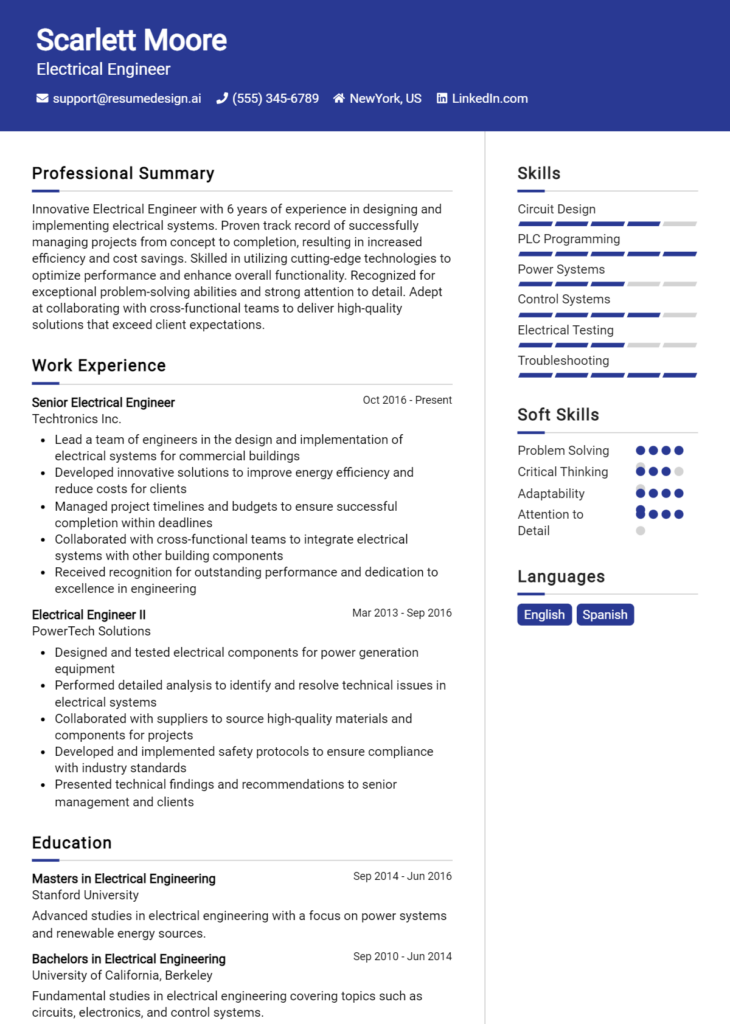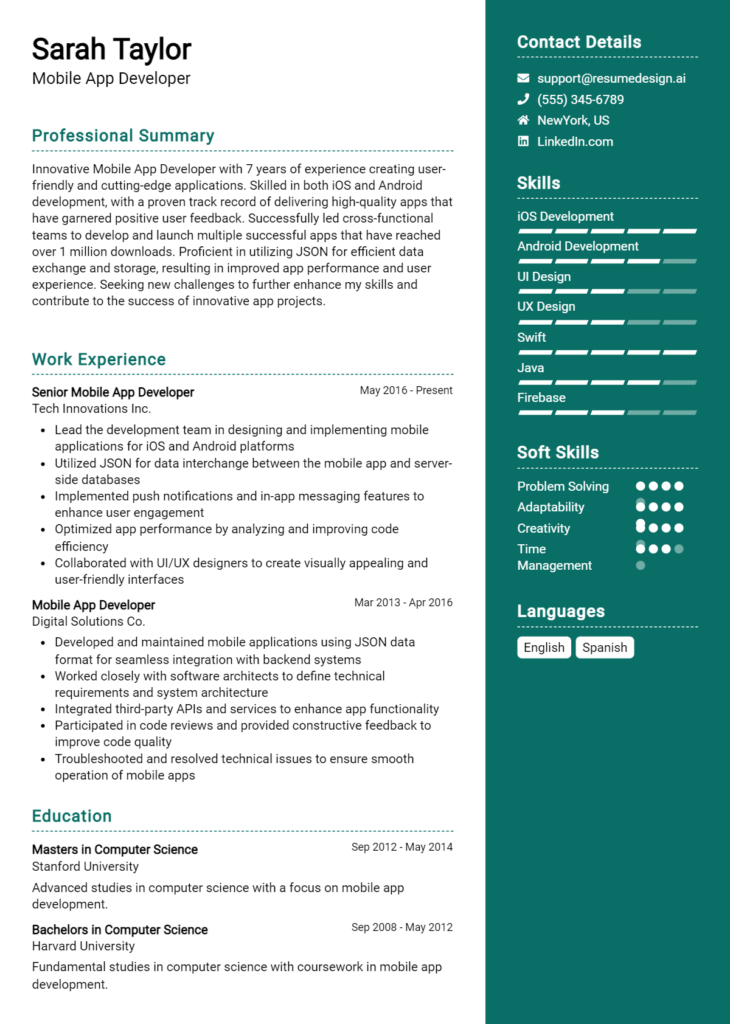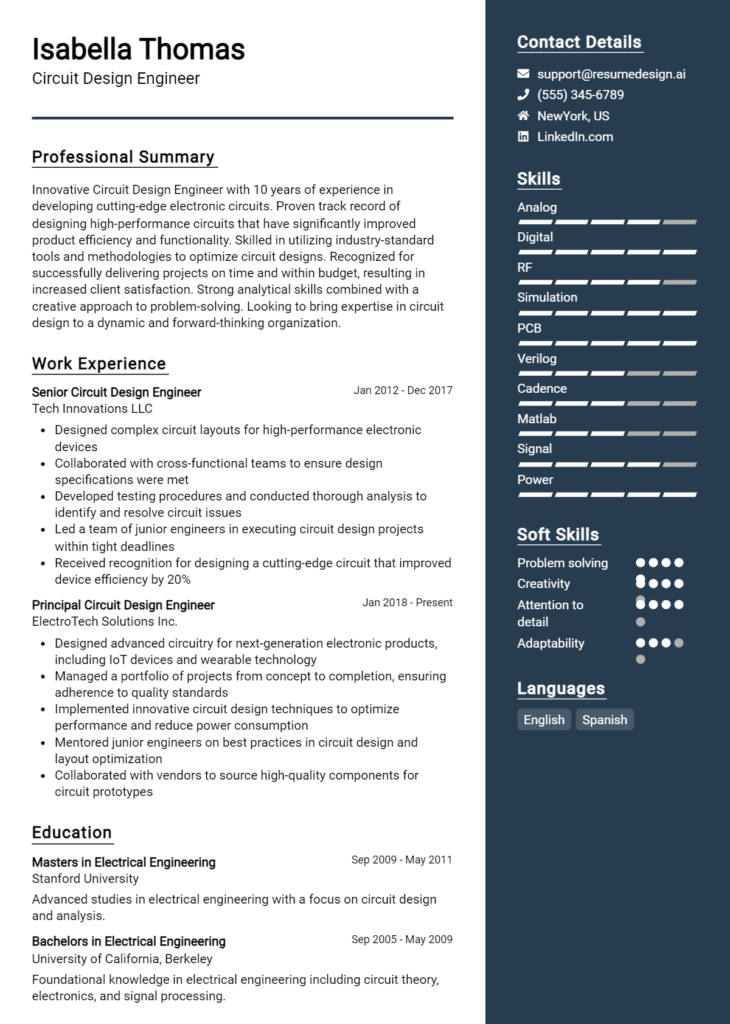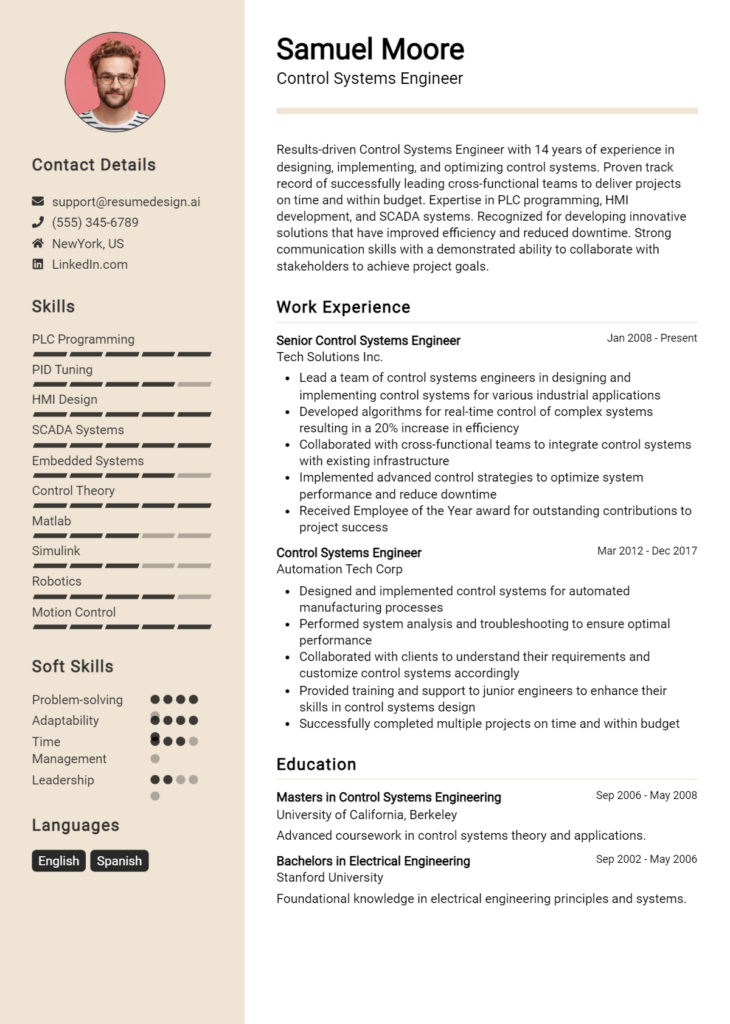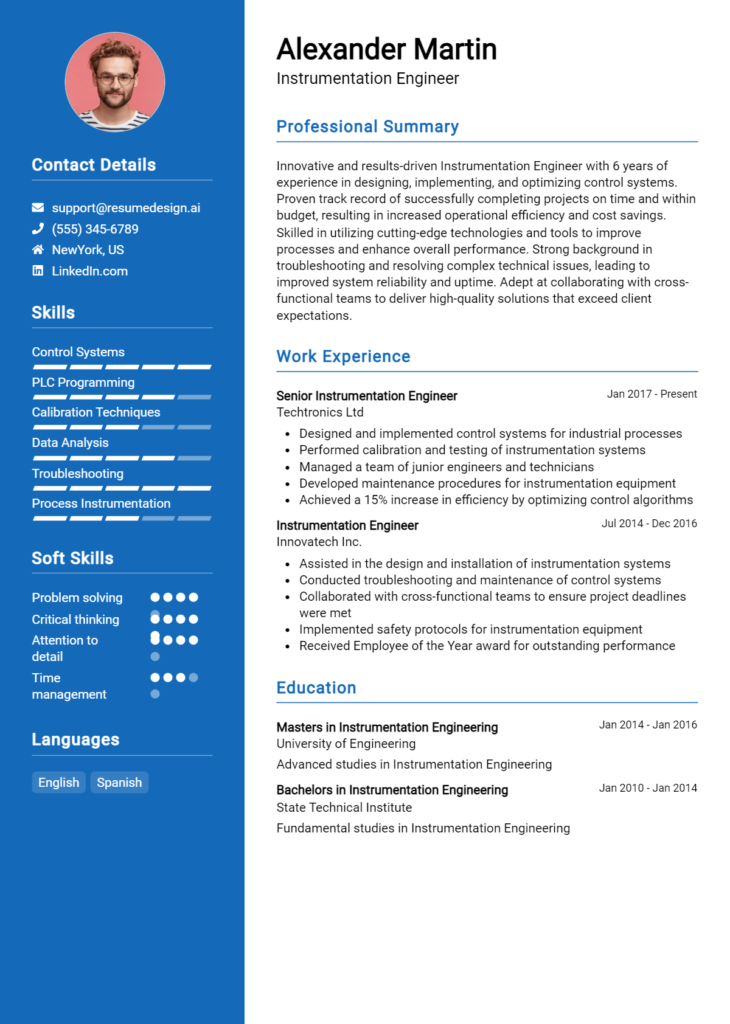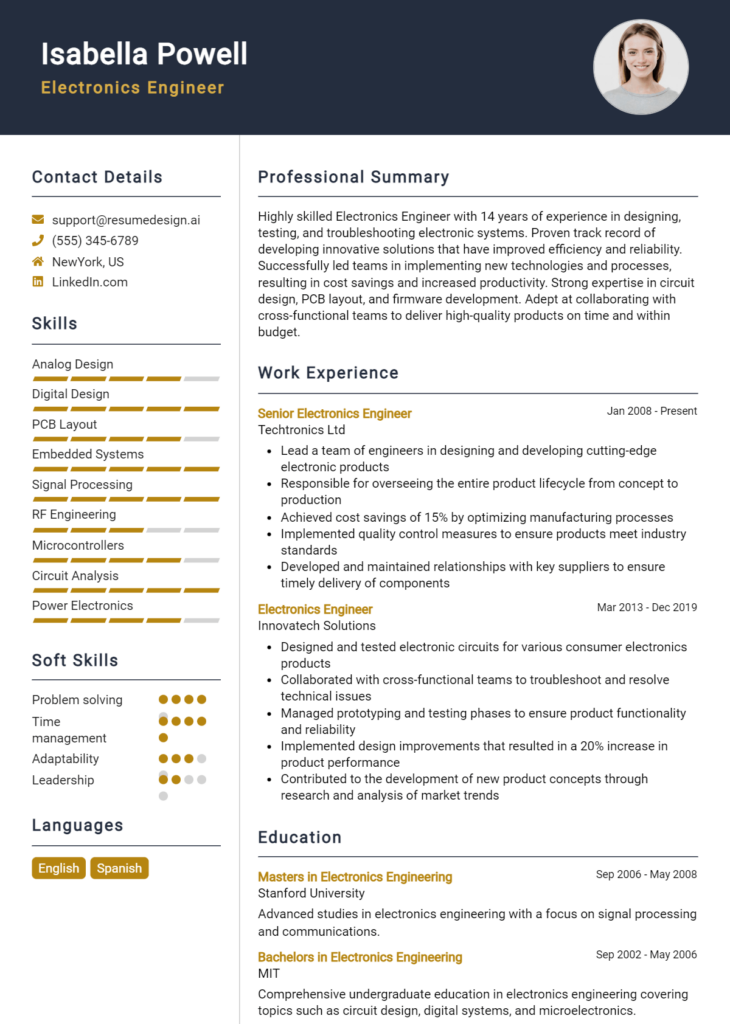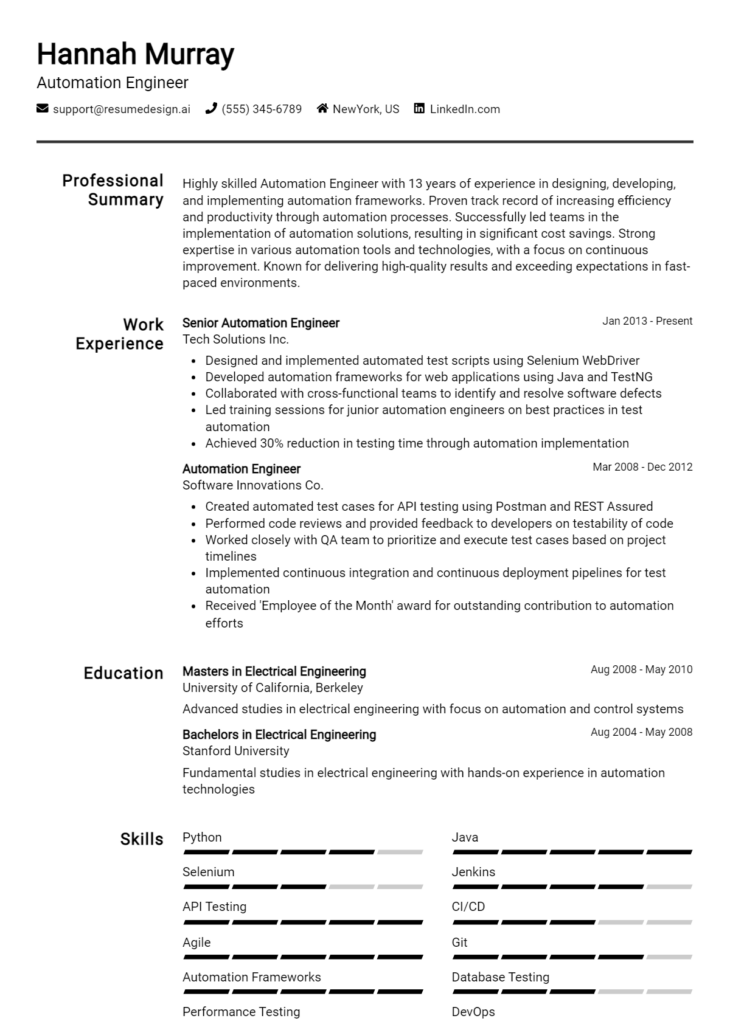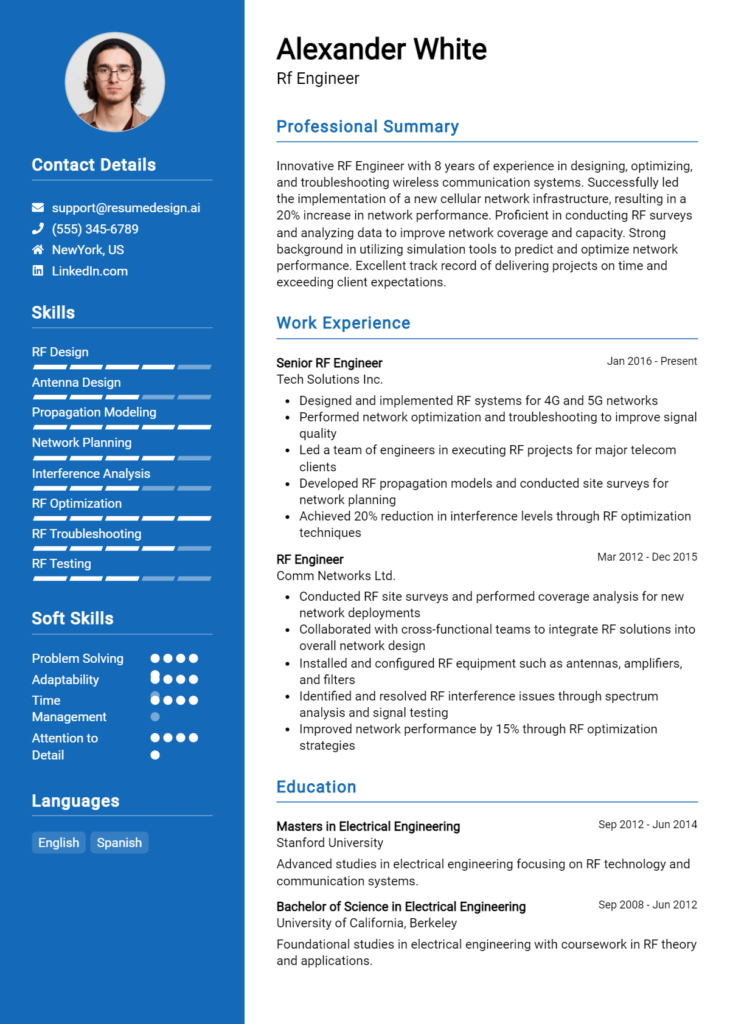Power Systems Engineer Core Responsibilities
A Power Systems Engineer plays a crucial role in designing, analyzing, and optimizing electrical power systems. This position requires strong technical knowledge in electrical engineering, operational efficiency, and exceptional problem-solving skills. Power Systems Engineers collaborate across departments, ensuring seamless communication between teams such as design, operations, and maintenance. Their expertise directly contributes to organizational goals by enhancing system reliability and performance. A well-structured resume can effectively highlight these qualifications, showcasing the candidate's ability to drive innovation and efficiency.
Common Responsibilities Listed on Power Systems Engineer Resume
- Design and analyze electrical power systems and components.
- Conduct load flow, short circuit, and stability studies.
- Collaborate with multidisciplinary teams to ensure project alignment.
- Develop and implement system protection schemes.
- Perform troubleshooting and root cause analysis of power system issues.
- Oversee and coordinate field testing and commissioning activities.
- Prepare technical reports and documentation for project stakeholders.
- Ensure compliance with industry standards and regulations.
- Provide technical support during project lifecycle and maintenance phases.
- Optimize power system performance and reliability.
- Evaluate and recommend upgrades or modifications to existing systems.
High-Level Resume Tips for Power Systems Engineer Professionals
In today's competitive job market, the importance of a well-crafted resume cannot be overstated, especially for Power Systems Engineer professionals. Your resume is often the first impression you make on a potential employer; it serves as a vital tool to showcase your skills, achievements, and suitability for the role. A strong resume not only highlights your technical expertise but also reflects your ability to contribute to the success of the organization. This guide will provide practical and actionable resume tips specifically tailored for Power Systems Engineer professionals to help you stand out in a crowded field.
Top Resume Tips for Power Systems Engineer Professionals
- Tailor your resume for each job application by aligning your skills and experiences with the specific requirements outlined in the job description.
- Highlight relevant experience by focusing on past roles that directly relate to power systems engineering, such as power generation, transmission, and distribution projects.
- Quantify your achievements to demonstrate the impact of your contributions. Use metrics such as reduced downtime percentages, cost savings, or improved system efficiency.
- Showcase industry-specific skills, including proficiency in software tools (like MATLAB, PSS/E, or ETAP), as well as your understanding of regulatory standards and compliance.
- Include relevant certifications and licenses that enhance your credibility, such as Professional Engineer (PE) designation or Certified Energy Manager (CEM).
- Utilize industry keywords to pass through Applicant Tracking Systems (ATS) by incorporating terms commonly used in power systems engineering.
- Keep your resume concise and focused, ideally 1-2 pages, ensuring that the most important information is easily accessible to recruiters.
- Use action verbs to clearly convey your role in projects and tasks, such as "designed," "implemented," or "analyzed," which can make your contributions more impactful.
- Integrate professional development experiences, such as conferences, workshops, or seminars relevant to power systems engineering, to demonstrate your commitment to continuous learning.
By implementing these tips, you can significantly enhance your resume's effectiveness, increasing your chances of landing a job in the Power Systems Engineer field. A well-structured and targeted resume not only showcases your qualifications but also reflects your professionalism and attention to detail, making you a more attractive candidate to potential employers.
Why Resume Headlines & Titles are Important for Power Systems Engineer
In the competitive field of electrical engineering, particularly in power systems, a well-crafted resume headline or title is crucial for job seekers. It serves as the first impression a hiring manager has of a candidate, encapsulating their key qualifications in a single impactful phrase. A strong headline not only grabs attention but also provides a succinct summary of the applicant's expertise and suitability for the role. This initial hook should be concise, relevant, and tailored to the specific job being applied for, setting the tone for the rest of the resume and encouraging further reading.
Best Practices for Crafting Resume Headlines for Power Systems Engineer
- Keep it concise: Aim for 1-2 lines that clearly state your expertise.
- Be role-specific: Use keywords relevant to power systems engineering to align with the job description.
- Highlight key strengths: Incorporate your most impressive skills or accomplishments.
- Avoid jargon: Use clear language that is easily understandable by hiring managers.
- Use action verbs: Start with strong verbs to convey proactivity and impact.
- Tailor for each application: Customize your headline for each job to reflect its unique requirements.
- Focus on value: Indicate how your qualifications can benefit the potential employer.
- Maintain professionalism: Ensure the tone is suitable for the engineering field, avoiding overly casual phrases.
Example Resume Headlines for Power Systems Engineer
Strong Resume Headlines
Dynamic Power Systems Engineer with 5+ Years of Experience in Grid Optimization and Renewable Integration
Results-Driven Electrical Engineer Specializing in High Voltage Systems and Energy Efficiency Solutions
Innovative Power Systems Specialist with Proven Track Record in Project Management and System Design
Experienced Power Engineer Committed to Sustainable Energy Solutions and Grid Resilience
Weak Resume Headlines
Engineer with Experience
Looking for an Engineering Job
Power Systems Engineer
Strong headlines are effective because they convey specific skills and experiences, making it clear to hiring managers what the candidate brings to the table. They create an immediate connection between the candidate's qualifications and the job's requirements. In contrast, weak headlines fail to impress due to their vagueness and lack of detail, providing little insight into the candidate’s unique value or relevance to the role. A strong headline acts as a powerful marketing tool that highlights the candidate's strengths, while a weak one may lead to the resume being overlooked.
Writing an Exceptional Power Systems Engineer Resume Summary
A well-crafted resume summary is crucial for a Power Systems Engineer as it serves as the first impression to hiring managers. This brief yet impactful paragraph quickly highlights the candidate's key skills, relevant experience, and significant accomplishments, making it easier for employers to gauge if the applicant is a suitable fit for the position. An exceptional summary should be concise and tailored to the specific job description, effectively drawing attention and encouraging further reading of the resume.
Best Practices for Writing a Power Systems Engineer Resume Summary
- Quantify Achievements: Use numbers to highlight your accomplishments, such as project budgets, efficiency improvements, or system capabilities.
- Focus on Relevant Skills: Emphasize technical skills and certifications that align with the job requirements, such as expertise in specific power systems software or methodologies.
- Tailor for the Job Description: Customize your summary to reflect the language and priorities of the job posting, demonstrating a clear connection to the role.
- Be Concise: Keep it to 2-4 sentences that deliver maximum impact without overwhelming the reader.
- Highlight Key Accomplishments: Mention notable projects or contributions that showcase your expertise and value to potential employers.
- Use Strong Action Verbs: Start sentences with dynamic verbs to convey confidence and proactivity in your role.
- Avoid Jargon: Use clear and accessible language to ensure your summary is understandable to a broader audience, including HR personnel.
- Showcase Soft Skills: Include relevant soft skills, such as teamwork, leadership, and communication, to present a well-rounded candidate.
Example Power Systems Engineer Resume Summaries
Strong Resume Summaries
Results-driven Power Systems Engineer with over 8 years of experience in designing and implementing high-efficiency electrical systems. Successfully reduced operational costs by 15% through innovative project management and system optimization.
Detail-oriented engineer skilled in power distribution and renewable energy systems, having led a team that completed a $2 million solar project ahead of schedule, increasing energy efficiency by 25%.
Dynamic Power Systems Engineer with expertise in modeling and simulation software, achieving a 30% reduction in system downtime through proactive maintenance strategies and real-time monitoring solutions.
Accomplished engineer with a track record of enhancing grid reliability and performance, contributing to a 20% increase in system capacity through strategic upgrades and rigorous testing protocols.
Weak Resume Summaries
Experienced engineer looking for opportunities in power systems. I have worked on various projects and am familiar with electrical systems.
Power Systems Engineer with some experience in the field. I am a hardworking individual eager to take on new challenges.
The strong resume summaries stand out due to their quantifiable achievements, focused skill sets, and clear relevance to the role of a Power Systems Engineer. They provide specific examples of the candidate's impact, demonstrating not only technical expertise but also a results-oriented mindset. In contrast, the weak summaries fail to convey any meaningful accomplishments or specific skills, making them too vague and generic to capture a hiring manager's interest.
Work Experience Section for Power Systems Engineer Resume
The work experience section of a Power Systems Engineer resume is crucial for demonstrating the candidate's technical capabilities, leadership qualities, and the ability to deliver high-quality projects. This section serves as a platform to showcase not only the specific engineering skills acquired through previous roles but also the experience in managing teams and collaborating effectively with cross-functional groups. Quantifying achievements, such as improvements in system efficiency or successful project completions, helps to align the candidate's experience with industry standards and highlights their impact in prior positions, making them a more attractive option for prospective employers.
Best Practices for Power Systems Engineer Work Experience
- Focus on quantifiable results, such as percentage improvements in system performance or cost reductions achieved.
- Use industry-specific terminology to demonstrate familiarity with relevant concepts and technologies.
- Highlight leadership roles in projects, emphasizing team management and collaboration outcomes.
- Detail the technologies and tools used in each role to showcase technical expertise.
- Include specific examples of challenges faced and how they were overcome to demonstrate problem-solving abilities.
- Align your experiences with the job description, emphasizing relevant skills and accomplishments.
- Keep descriptions concise but detailed enough to provide a clear picture of your contributions.
- Use action verbs to convey professionalism and initiative in your work experience descriptions.
Example Work Experiences for Power Systems Engineer
Strong Experiences
- Led a team of engineers in the redesign of a power distribution system, resulting in a 30% reduction in energy loss and a cost savings of $150,000 annually.
- Developed and implemented a predictive maintenance program for substations, decreasing downtime by 25% and extending equipment lifespan by an average of two years.
- Collaborated with cross-functional teams to integrate renewable energy sources, increasing system capacity by 40% while ensuring compliance with regulatory standards.
- Managed a multi-million dollar project to upgrade grid infrastructure, successfully delivering ahead of schedule and under budget, earning recognition from senior management.
Weak Experiences
- Worked on various engineering projects related to power systems.
- Assisted in team efforts to improve system performance.
- Engaged in routine maintenance of electrical equipment.
- Participated in meetings discussing project updates and goals.
The examples provided illustrate the difference between strong and weak experiences. The strong experiences are characterized by clear quantifiable outcomes, specific technical achievements, and evidence of leadership and collaboration, which together create a compelling narrative of the candidate's capabilities. In contrast, the weak experiences lack detail and specificity, making them less impactful and failing to effectively showcase the candidate's skills and contributions in the field of power systems engineering.
Education and Certifications Section for Power Systems Engineer Resume
The Education and Certifications section of a Power Systems Engineer resume is crucial as it serves as a testament to the candidate’s academic foundation and professional qualifications. This section not only showcases the degrees earned and relevant coursework completed but also highlights industry-recognized certifications that reflect the candidate's commitment to continuous learning and professional development. By providing detailed information on relevant education and specialized training, candidates can significantly enhance their credibility and demonstrate their alignment with the specific demands of the Power Systems Engineer role.
Best Practices for Power Systems Engineer Education and Certifications
- Prioritize relevant degrees, such as Electrical Engineering or Power Systems Engineering, at the top of the section.
- Include industry-recognized certifications like Professional Engineer (PE) license or Certified Energy Manager (CEM).
- List relevant coursework that pertains to power systems, renewable energy, or electrical design.
- Be specific about the level of education, including the institution's name and graduation date.
- Highlight any specialized training programs or workshops attended that are pertinent to the field.
- Use clear formatting to differentiate between degrees, certifications, and coursework for easy readability.
- Keep the section concise, focusing on information directly relevant to the Power Systems Engineer position.
- Update this section regularly to reflect any new qualifications or continuing education efforts.
Example Education and Certifications for Power Systems Engineer
Strong Examples
- B.S. in Electrical Engineering, University of California, Berkeley, 2020
- Certified Power Systems Professional (CPSP), 2022
- Relevant Coursework: Power System Analysis, Renewable Energy Systems, and High Voltage Engineering
- M.S. in Power Systems Engineering, Georgia Institute of Technology, 2022
Weak Examples
- B.A. in History, University of Texas, 2018
- Certification in Basic Computer Skills, 2019
- Coursework: Introduction to Philosophy
- Diploma in Electrical Technology, 2010 (outdated)
The strong examples are considered relevant as they directly pertain to the field of Power Systems Engineering, showcasing both educational background and certifications that enhance the candidate's expertise. In contrast, the weak examples lack relevance to the position, include outdated qualifications, or focus on unrelated disciplines, which do not support the candidate's career objectives in power systems engineering.
Top Skills & Keywords for Power Systems Engineer Resume
As a Power Systems Engineer, showcasing your skills on your resume is crucial for standing out in a competitive job market. Employers seek candidates who not only possess technical expertise but also demonstrate strong interpersonal abilities. A well-rounded skill set reflects your capability to tackle complex challenges, work collaboratively with diverse teams, and adapt to evolving technologies in the power systems domain. Highlighting both hard and soft skills can significantly enhance your resume, making it easier for hiring managers to recognize your qualifications and fit for the role.
Top Hard & Soft Skills for Power Systems Engineer
Soft Skills
- Problem-solving
- Communication
- Teamwork and collaboration
- Analytical thinking
- Adaptability
- Time management
- Leadership
- Critical thinking
- Attention to detail
- Project management
Hard Skills
- Power system analysis
- Circuit design
- Load flow analysis
- SCADA systems
- Renewable energy technologies
- Electrical safety regulations
- Protection and control systems
- MATLAB and Simulink proficiency
- AutoCAD and other design software
- Knowledge of power electronics
By integrating these essential skills into your resume, along with a strong emphasis on your work experience, you can create a compelling narrative that showcases your qualifications as a Power Systems Engineer.
Stand Out with a Winning Power Systems Engineer Cover Letter
Dear [Hiring Manager's Name],
I am writing to express my interest in the Power Systems Engineer position at [Company Name], as advertised on [Job Board/Company Website]. With a solid foundation in electrical engineering and extensive experience in power systems design and analysis, I am excited about the opportunity to contribute to your team. My hands-on expertise in renewable energy integration and grid stability aligns perfectly with [Company Name]'s commitment to innovative and sustainable energy solutions.
During my previous role at [Previous Company Name], I successfully led a project focused on optimizing grid performance through advanced modeling techniques and simulation software. By implementing a new power flow analysis approach, we were able to enhance the reliability of the distribution network, resulting in a 15% reduction in outage incidents. My proficiency in tools such as ETAP and PSS/E, combined with my ability to collaborate across multidisciplinary teams, ensures that I can deliver effective solutions that meet both technical and operational requirements.
I am particularly drawn to [Company Name] because of your distinguished reputation in pioneering smart grid technologies and commitment to sustainability. I am eager to bring my skills in power system stability, fault analysis, and renewable energy systems to your esteemed organization. I believe that my proactive approach to problem-solving and passion for innovative energy solutions would make a valuable addition to your team.
Thank you for considering my application. I look forward to the possibility of discussing how my background, skills, and enthusiasms align with the goals of [Company Name]. I am excited about the opportunity to contribute to your projects and help drive forward your mission of enhancing energy efficiency and reliability.
Sincerely,
[Your Name]
[Your Contact Information]
[LinkedIn Profile or Website, if applicable]
Common Mistakes to Avoid in a Power Systems Engineer Resume
When crafting a resume for a Power Systems Engineer position, it's crucial to present your qualifications and experience in the best light possible. However, many candidates make common mistakes that can detract from their overall appeal to potential employers. Avoiding these pitfalls can significantly enhance your resume and increase your chances of landing an interview. Here are some common mistakes to steer clear of:
Generic Objective Statements: Using a one-size-fits-all objective that doesn’t specifically address the power systems field can make your resume seem unfocused. Tailor your objective to reflect your passion and goals related to power systems engineering.
Lack of Relevant Keywords: Failing to include industry-specific keywords can hinder your resume's visibility in applicant tracking systems (ATS). Incorporate terms such as "power distribution," "renewable energy," and "load analysis" to increase your chances of passing through ATS filters.
Overly Technical Language: While it's important to showcase your technical skills, using excessive jargon can alienate hiring managers who may not have the same level of expertise. Aim for clarity and balance technical details with accessible explanations.
Ignoring Soft Skills: Power Systems Engineers must collaborate across various teams. Omitting soft skills like communication, teamwork, and problem-solving can lead to an incomplete picture of your capabilities. Highlight these attributes alongside your technical skills.
Poor Formatting: A cluttered or confusing layout can make it difficult for hiring managers to read your resume. Use a clean, professional format with clear headings and bullet points to enhance readability.
Not Quantifying Achievements: Vague descriptions of your accomplishments can diminish their impact. Use specific numbers and metrics, such as "reduced power loss by 15%" or "managed projects worth $1 million," to demonstrate your contributions clearly.
Neglecting Continuous Learning: In a rapidly evolving field like power systems engineering, failing to mention ongoing education or certifications can make you seem outdated. Include any recent training or certifications to show your commitment to professional development.
Omitting Relevant Projects: If you have worked on significant projects, leaving them out can be a missed opportunity. Detail relevant projects, including your role, the technologies used, and the outcomes achieved to provide concrete evidence of your capabilities.
Conclusion
As we conclude our discussion on the essential skills and responsibilities of a Power Systems Engineer, it's clear that this role is integral to the design, implementation, and maintenance of electrical power systems. Key points include the importance of technical expertise in power electronics, understanding of renewable energy integration, proficiency in power system simulations, and the ability to analyze and optimize system performance. Additionally, strong communication and collaboration skills are vital for working with multidisciplinary teams and stakeholders.
With the competitive job market in mind, now is the perfect time to review your resume and ensure it accurately reflects your qualifications and achievements in this dynamic field. Whether you're updating your current resume or starting from scratch, there are valuable resources available to assist you. Consider utilizing resume templates for a polished look, a resume builder for an easy and guided approach, and resume examples to draw inspiration from successful professionals. Don’t forget to enhance your application with a compelling cover letter template that highlights your passion and expertise.
Take action today—review your resume and leverage these tools to position yourself effectively in the job market. Your next opportunity as a Power Systems Engineer could be just around the corner!

